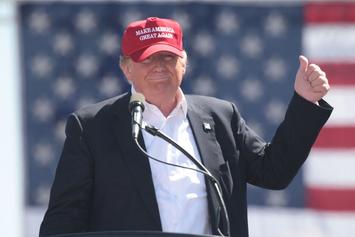
Sometimes Donald Trump does the right thing, even if it may be for the wrong reasons. His Justice Department’s late-term assault on Google for its monopolistic tyranny over search and digital advertising is precisely what is needed. Some may paint this as the last desperate act of a fading tyrant, but in reality it may be the most important move to protect democracy in recent years.
The anti-trust suit, filed just weeks before the election, is the latest example of the growing gap between the tech oligarchy and Trump on issues including the H1-B visas big tech depends on to keep labor costs down, web censorship, and, of course, Trump’s trade war with Silicon Valley’s close allies in China.
With the prospect of a Biden presidency looming, Google and the other tech monopolies may simply be willing to wait to try and regain control of the national agenda and recover at least some of the vast political sway they enjoyed under Barack Obama. It’s likely that Trump was acting not to protect free markets and democracy but to punish his perceived foes who in his view have unfairly supported his opponent not only with their contributions and their expertise but also with their policies and algorithms.
Yet if Trump’s motivations are questionable, his action is the right one. The giants of the tech world—Amazon, Apple, Facebook, Google, and Microsoft—have become so powerful and so wealthy that they constitute a compelling danger to the economy, upward mobility, freedom of expression, and prospects for a functional democracy.
All five companies started with enormous innovation, part of an entrepreneurial ecosystem of garage startups envied all over the world. But in more recent times, these companies have become part of a system of conglomerate control more akin to the Japanese keiretsu or Korean chaebol, essentially interlocking directorates who parcel out control of critical parts of the economy. With competition down, innovation has slowed as most smaller firms are either acquired or relegated to being tools to be exploited and then discarded. One online publisher uses a Star Trek analogy to describe his firm’s status with Google: “It’s a bit like being assimilated by the Borg. You get cool new powers. But having been assimilated, if your implants were ever removed, you’d certainly die. That basically captures our relationship to Google.”
The steady erosion in anti-trust enforcement over decades and under both political parties has left firms like Facebook and Google with almost unlimited power to acquire or crush competitors. Unfettered by government, consolidation has allowed oligarchs to gain dominant shares of key markets from search (Google) to social media (Facebook) to cloud computing and book sales (Amazon); Google and Apple together provide over 95 percent of operating software for mobile devices while Microsoft still accounts for over 80 percent of the software that runs personal computers around the world.
The pandemic has strengthened their positions further, and the tech giants now account for nearly 40 percent of the value of the Standard and Poor index, a level of concentration unprecedented in modern history. Today seven of the ten richest Americans come from the tech sector. From March to June 2020, Amazon founder Jeff Bezos saw his wealth rise by an estimated $48 billion to $183 billion, making him the world’s richest man.
This remarkable concentration of wealth necessitates precisely the kind of tough action endorsed by Trump and now acted on by his Justice Department. As progressives recognized in the gilded age—and some, like Elizabeth Warren, still do today—the extreme wealth and power in few hands represents a fundamental threat to democracy. “We can have a democratic society,” noted progressive Supreme Court Justice Louis Brandeis, "or we can have the concentration of great wealth in the hands of a few. We cannot have both.”
Read the rest of this piece at Daily Beast
Joel Kotkin is the author of The Coming of Neo-Feudalism: A Warning to the Global Middle Class. He is the Presidential Fellow in Urban Futures at Chapman University and Executive Director for Urban Reform Institute. Learn more at joelkotkin.com and follow him on Twitter @joelkotkin.
Photo credit: Gage Skidmore via Unsplash under CC0 2.0 License.












